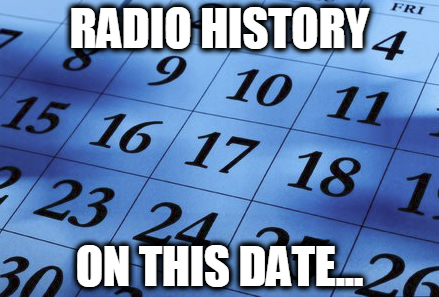 |
| Wendell Niles, Marilyn Monroe 1952 |
Niles worked on such radio shows as The Charlotte Greenwood Show, Hedda Hopper's Hollywood, The Adventures of Philip Marlowe, The Man Called X, The Bob Hope Show, The Burns & Allen Show, The Milton Berle Show and The Chase and Sanborn Hour. On February 15, 1950, Wendell starred in the radio pilot for The Adventures of the Scarlet Cloak along with Gerald Mohr.
 |
| Wendell Niles |
He and his brother, Ken, developed one of the first radio dramas, which eventually became Theatre of the Mind.
He toured with Bob Hope during World War II. Among his film credits are Knute Rockne, All American (1940) with Ronald Reagan and Hollywood or Bust (the last Martin & Lewis comedy, 1956) as himself.
Wendell Niles was the announcer for TV's "America's Show Of Surprises"... It Could Be You, and for the Hatos-Hall production Your First Impression. Niles was also the original announcer for Let's Make a Deal during that show's first season in 1963 and 1964; he was later replaced by Jay Stewart.
Niles and his brother, Ken, are the first brothers to have stars on the Hollywood Walk of Fame.
He died March 28 1994 at age 89.
➦In 1945...Sheb Wooley recorded the first commercial record made in Nashville. The song was recorded at the studios of WSM-AM and released by the Bullet label; but it would be 13 years before Wooley would finally score with a big hit (“The Purple People Eater” was #1 for six weeks in 1958.)
WSM is credited with helping shape Nashville into a recording industry capital. Because of WSM's wide reach, musical acts from all across the eastern United States came to Nashville in the early decades of the station's existence, in hopes of getting to perform on WSM. Over time, as more acts and recording companies came to Nashville, the city became known as the center of the country music industry. Disc jockey David Cobb is credited with first referring to Nashville as "Music City USA", a designation that has since been adopted as the city's official nickname by the local tourism board.
➦In 1945...The mystery voice of "Mr. Hush" was introduced to the audience of the radio show, "Truth or Consequences", which was hosted by Ralph Edwards.
 |
| Ralph Edwards |
After some part-time announcing jobs, he got his big break in 1938 with a full-time job for the Columbia Broadcasting System on WABC (now WCBS-AM), where he worked with two other young announcers who would become broadcasting fixtures - Mel Allen and Andre Baruch.
It was Edwards who introduced Major Bowes every week on the Original Amateur Hour and Fred Allen on Town Hall Tonight. Edwards perfected a chuckling delivery, sounding as though he was in the midst of telling a very funny story. This "laugh in the voice" technique served him well when 20th Century Fox hired him to narrate the coming-attractions trailers for Laurel and Hardy movies. He later used the conspiratorial chuckle frequently when surprising someone on his programs.
In 1940, Edwards created the game show Truth or Consequences, which aired for 38 years on radio and television. Contestants were asked to perform (often ridiculous) stunts for prizes of cash or merchandise.
➦In 1958...the first radio broadcast from space occurred when the voice of President Dwight D. Eisenhower said, "To all mankind, America's wish for Peace on Earth & Good Will to Men Everywhere".
➦In 1963...Much to the chagrin of the disc jockeys at 50,000-watt 77WABC in New York, the 5,000-watt blowtorch known as WMCA 570 AMand its famed “Good Guys” became the first New York radio station to play the Beatles’ “I Want to Hold Your Hand”. It didn’t take long for WABC to get revenge. WABC played the record an hour later and started calling itself the “official” Beatles station (W-A-Beatle-C).
Throughout the 1960s, WMCA would continue to beat other radio stations on most Beatles' promotions, scoring firsts, causing headaches in particular for rival WABC - most notably when Capitol Records printed a photograph of the "Good Guys" line-up - on the back of a limited edition record sleeve for the single, "I Want to Hold Your Hand" (Side 2: "I Saw Her Standing There"). WMCA's Good Guys were also featured at both of the Beatles' concerts at Shea Stadium, on August 15, 1965 and on August 23, 1966.
 |
| WMCA Good Guys: Johnny Dark, Joe O'Brien, Jack Spector, B. Mitchel Reed. Harry Harrison |
Since WABC knew WMCA already had a relationship with the Beatles, with tapes of the group promoting the station - what could WABC do to achieve the same? In August 1965, WABC came up with what it thought was a brilliant idea - issuing "medals" called "The Order of the All-Americans" - tied to its own DJs. The strategy was to present the medals to each of the Beatles the next time they were in New York. Everything was set. The goal was to get each Beatle to comment on the "medal" - and then to get each to say the station's call letters, "W-A-B-C." These in turn could be used in station IDs and promotions, etc. - thus matching WMCA's success at getting the Beatles to promote WMCA and its Good Guys. But WABC's plan backfired. The station got its interviews, but none of the band's members would utter WABC's call letters. According to Beatles' historian Bruce Spizer, manager Brian Epstein ordered the Beatles to stop "giving away valuable promotional spots to radio stations for free."



No comments:
Post a Comment
Note: Only a member of this blog may post a comment.